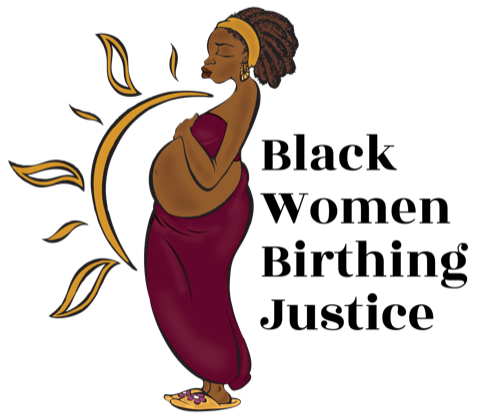Call to Action: Reducing Cesarean Rates for Black Women
The month of April marks Cesarean Awareness Month. It’s a time for those of us connected to birth and public health to educate the general public about cesarean sections.
In 2010, after witnessing an onslaught of coercive and medically unnecessary cesareans among family and friends, I decided to become an active participant in seeking change in New Jersey. I formed the Greater Essex County chapter of ICAN (International Cesarean Awareness Network). At the time, the state had the highest C-section rate in the nation, competing with Louisiana and Florida for the top spot. Not only were mothers alarmed, but state officials in NJ were actively working to understand the high rate of surgical birth and to see what could be done about reversing the increasing cesarean trend. Meanwhile, ICAN continued to keep track of the cesarean rates among hospitals in the nation. Why does this matter? Because the higher the C-section rate the greater indication that a hospital’s birth protocols include practices that are not evidence-based, such as induction before 39 weeks, elective inductions, elective cesareans for women who are excellent VBAC candidates and de facto VBAC bans. As a consumer (which we are) this information could be used to choose a birth facility whose rates (ergo practices) indicated a closer adherence to the support of physiological (“normal”) birth and evidence-based care.
World reports indicate that in spite of outspending other nations for health care, the U.S. has the worst maternal and infant mortality rate among industrialized countries. These rates are even higher for women of color. According to the CDC, black women are 3.2 times more likely to die from pregnancy and childbirth than their white counterparts. The study also stated that African American infants are 2.4 times more likely to die from premature birth than white infants. Additionally, women of color nationally have the highest cesarean rates of any demographic. While cesarean rates for white women have consistently decreased for four consecutive years, to a rate of 32% (2013), the cesarean rate for black women has remained unchanged at 35.8% (2013). With each increasing cesarean, women are at higher risks of infection, poor wound healing, increased blood loss, post-surgical complications, hysterectomy, placental complication (accreta), lower breastfeeding rates and even death. What does this mean for mothers in NJ and elsewhere? That more medical attention–testing, interventions and procedures–does not mean better outcomes. Moms need high touch, low technology care such as that experienced with midwives and ob-gyns who adhere to physiological birth unless clinical indications dictate otherwise.
As a doula, educator and birth advocate, I would be remiss if I did not share with an expectant family the implications of birthing, for example, at a hospital with high cesarean and intervention rates or one that has a track record for not supporting healthy birth practices. When a family comes to me, I’m not just there to show them how to breathe but to share information and resources so that they can have the best pregnancy and birth possible.
The time is now for authentic, dynamic, and personalized collaborative maternity care. We must never lose sight of the fact that today's action will dictate tomorrow's outcome, and so we must be concerned with current needs while preserving future possibilities. To think of anything less is irresponsible. Our current system is quick to handle emergencies–real, imagined and those created by medical practitioners–but unable and unwilling to help families navigate the system with grace, autonomy, and respect. Too many families are denied informed decision-making, informed consent and ultimately informed refusal. The time is now for those of us with the tenacity of our convictions and passion for preserving the mother-baby dyad to get up and DO SOMETHING.
Additional Resources:
Brown, Tatiana M. "African-American Women Remain More Likely to Die From Childbirth." African-American Women Remain More Likely to Die From Childbirth. For Harriet, 23 Apr. 2013. Web. 15 Oct. 2013.
"Cesarean Delivery and Maternal Choice." New Jersey Department of Health and Senior Services and the Centers for Disease Control and Prevention (CDC), 31 Mar. 2011. Web. 15 Oct. 2013.
Dekker, Rebecca. "The Joint Commission Requires Evidence-Based Perinatal Measures." Evidence Based Birth. 30 Jan. 2013. Web. 31 Jan. 2013.
Denk, Ph.D, Charles E., and Kathryn P. Aveni, RNC MPH. "Cesarean Delivery: State Surveillance Overview." New Jersey Department of Health and Senior Services. 30 Sept. 2009. Web. 17 Oct. 2013.
Denk, Ph.D, Charles E. "Table 1. Cesarean Deliveries to First ‐ Time Mothers North Jersey, 2012." New Jersey Department of Health and Senior Services, 31 Mar. 2013. Web. 15 Oct. 2013. .
"Health of Black or African American Non-Hispanic Population." Centers for Disease Control and Prevention. Centers for Disease Control and Prevention, 6 Feb. 2015. Web. 30 Mar. 2015.
"Money May Be Motivating Doctors To Do More C-Sections." NPR. NPR, 30 Aug. 2013. Web. 17 Oct. 2013.
Pearson, Catherine. "C-Section Rates Vary Across U.S. Hospitals." The Huffington Post. TheHuffingtonPost.com, 15 Mar. 2013. Web. 23 Apr. 2013.
Lakeisha M. Dennis, MTS, LCCE, CLC, CD(DONA) is an experienced and certified labor doula, perinatal educator, lactation counselor, ICAN Chapter Leader and community birth advocate from Newark, New Jersey. She currently serves as the ICAN Chapter Director and Board Member at Large.
